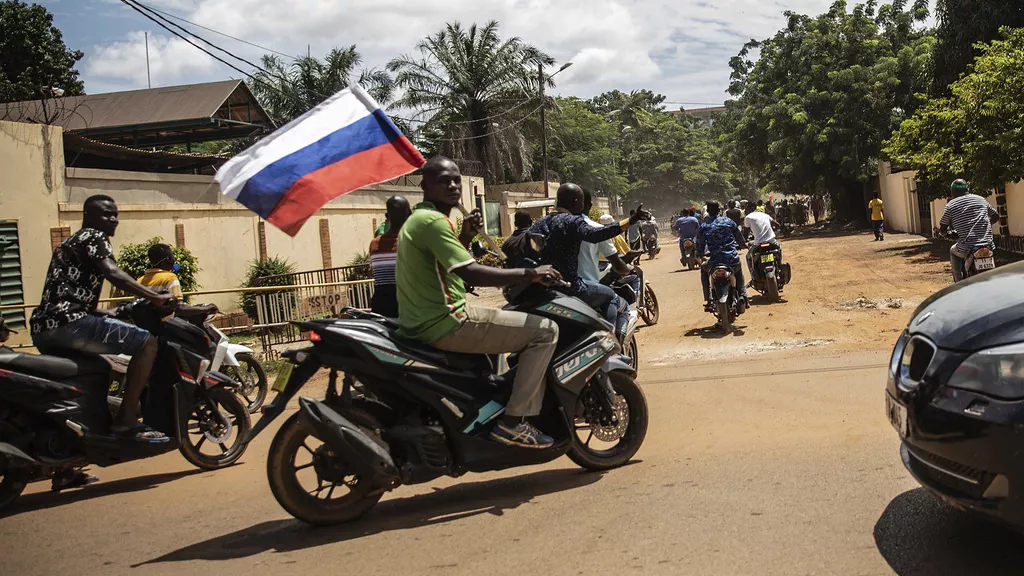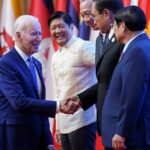Grain exports, arms deliveries, energy cooperation: in recent years, Russia has strengthened its presence in Africa, an increasingly important market for the Russian economy, in the midst of the conflict in Ukraine.
Russia abandoned in July the agreement which allowed the export of millions of tons of Ukrainian grain through the Black Sea, including to African countries.
Faced with the concerns of African countries, Russia is posing as an alternative, with President Vladimir Putin proposing to “replace Ukrainian cereals on a commercial basis and free of charge”.
“Despite the sanctions, Russia will continue to work vigorously to organize the supply of grain, food, fertilizer and more to Africa,” Putin said in an article published Monday by the Kremlin.
Cereals
Russia, a major world producer, has already exported 11.5 million tonnes of cereals to Africa in 2022, and nearly ten million additional tonnes in the first six months of 2023.
According to Pavel Kalmytchek, a senior official of the Ministry of Economy, about 25% of Russian exports to Africa are deliveries of wheat and meslin, a mixture of several cereals.
For years, the paramilitary group Wagner has been considered Moscow’s armed wing in several African countries.
Wagner
Its fighters or “instructors” have been identified in Libya, Sudan, Mozambique, and are on the front line in Mali and the Central African Republic, where a Wagner executive manages the security of President Faustin-Archange Touadera.
Despite the aborted rebellion of Wagner boss Evgueni Prigojine at the end of June, the group’s operations on the continent – where it depends on the Russian army – have so far not been called into question.
Their future will depend on the “countries concerned”, said the head of Russian diplomacy, Sergei Lavrov. According to a European military source, the group also garners significant revenue by bringing gold and minerals back from Africa.
Armaments
The USSR signed arms contracts with several African countries. In recent years, Russia has sought to “continue and increase” cooperation in this area, according to an industry source contacted by AFP.
According to this Russian source, these include “modernization of weapons supplied since Soviet times” but also the delivery of new generation equipment.
“Russia is working with all countries, even those which traditionally cooperated in this area with France, the United States or Spain”, also argued this source.
Nuclear
Arms deliveries to Africa represent “30 to 40% of total annual Russian arms exports”, the director of the Russian Military and Technical Cooperation Service, Dmitry Shugayev, said in the summer of 2021.
In 2019, Mr. Shugayev put forward the figure of 14 billion dollars in military orders for Africa. Moscow, for example, is a major arms supplier to Algeria.
Russia is also seeking to export its nuclear infrastructure know-how to Africa. In Egypt, the Russian sector giant Rosatom began construction in 2022 of the country’s first power plant, in El-Dabaa, on the shores of the Mediterranean.
Oil projects
Eventually, Moscow would especially like to export its concept of “floating power plant” to African countries, which are largely deprived of atomic capabilities. According to the Russian Ministry of Energy, Moscow also has several oil projects in Africa, headed mainly by the private group Loukoil.
Deprived of the European market, Russia is trying to redirect its gas and oil exports and has announced that it wants to “intensify” energy cooperation with Algeria, a major exporter of natural gas.
According to the Ministry of Economy, about two thirds of Russian investments on the African continent are devoted to the exploration and production of oil and gas, but also uranium, diamonds, ores and other minerals.
This article is originally published on fr.africanews.com









